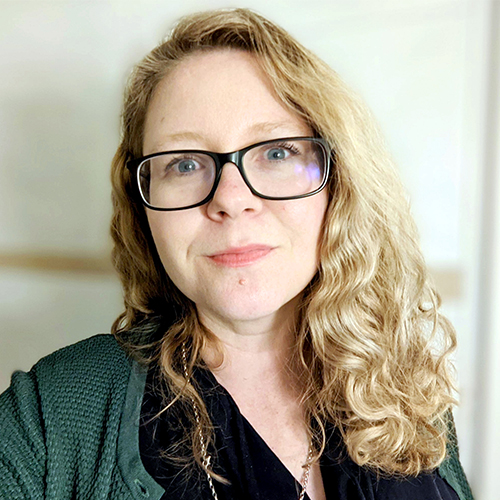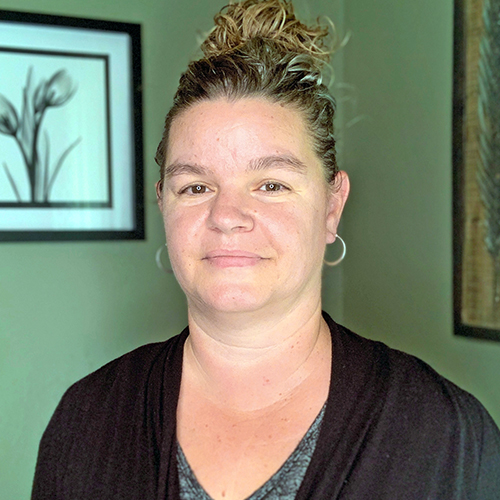 IBCLC Detailed Content Outline: Clinical Skills Focused CERPs - Section VII
IBCLC Detailed Content Outline: Clinical Skills Focused CERPs - Section VII
Access CERPs on Clinical Skills for the IBCLC Detailed Content Outline recertification requirements. Enjoy convenient on-demand viewing of the latest Clinical Skills focused IBCLC CERPs at your own pace.
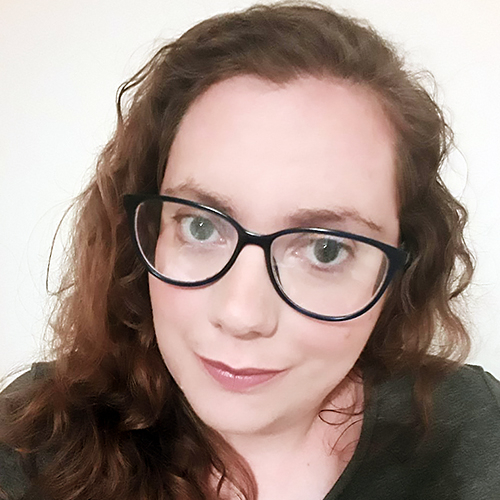

Lucy is an International Board Certified Lactation Consultant (IBCLC) Holistic Sleep Coach (HSC), public speaker, and author on the topic of lactation. She is also a qualified counsellor, child and is qualified in child development and child psychology.
Lucy runs a small but thriving Private Practice based on the South Coast of the UK but sees clients internationally. As a single mother of two boys who were hard to breastfeed, and as someone with ADHD, Lucy truly understands the highs and lows of parenthood both for neurotypical families and those who may have additional challenges.
Lucy’s approach is strongly underpinned by the belief that parents are the only true expert on their child, and that parental instinct is rarely wrong. Lucy uses listening and counselling skills first and foremost in her work, and prides herself on striving to provide a safe and inclusive space for everyone.
Topic: When Baby Says No: Assessment and Management of Breast and Bottle Refusal - [View Abstract]
Breast or bottle refusal can be distressing for parents and present a significant challenge for professionals. There are many underlying reasons why infants may display feeding aversion. These are often multi-layered and typically include emotional as well as anatomical or physical difficulties. During this presentation we will consider the causes of both breast and bottle refusal, looking at how these may present under different circumstances. We will explore how refusal impacts the parent – infant relationship and maternal self-efficacy. Once we have a clear, holistic picture regarding the complexities of feeding aversion, we will look at ways to support the dyad to overcome their difficulties including through working with other professionals. For those parents who find they cannot overcome the challenges they face, we will look at ways to help them reframe the experience and shift feelings away from failure and towards success.
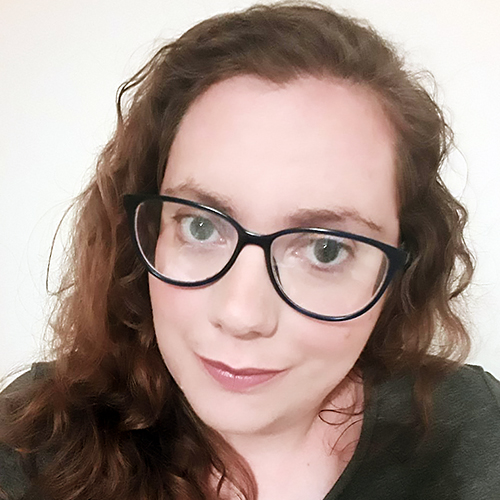
View Details / Enroll

When Breast Isn't Best: Challenges and Opportunities In Breastfeeding for Sexual Abuse Survivors

Elizabeth M. Johnson, MA is a trauma educator and peer support advocate in private practice. She helps people understand how sexual abuse affects sexual and reproductive health. She looks at how sexual abuse affects breastfeeding for example but also how traditional sex education ignores issues like how past abuse affects consent, teen pregnancy and risky behavior. Using a trauma lens, Elizabeth talks about everything sexual health related from Asking (about abuse) to Z(zzzz's) and everything in between. Elizabeth is the only educator in the world specializing in training and consulting on this topic.
In addition to training, speaking and consulting, Elizabeth has facilitated a free, weekly peer support group for sexual abuse survivors for over three years. She holds a Masters of Arts degree in Womens Studies from Southern Connecticut State University. Elizabeth identifies as a rape survivor and has worked with survivors since 2005. She lives in Durham, NC with her family.
Topic: When Breast Isn't Best: Challenges and Opportunities In Breastfeeding for Sexual Abuse Survivors - [View Abstract]
The benefits of breastfeeding are well known. Less known is how pervasive and long-lasting the effects of sexual abuse can be. As many as 1 in 3 women are survivors of contact sexual abuse. And, unfortunately, sexual abuse is rarely over when it's over.
Most new parents state that they want to at least “try” breastfeeding. And yet everyone knows someone for whom breastfeeding “didn’t work”. While informed care can sometimes help families stick with breastfeeding, even well-intended support can be triggering. Providers who deal with new families must have a working knowledge of sexual abuse as well as a trauma-informed approach in order to effectively support breastfeeding families. Learn how abuse can impact ability and desire to breastfeed, red flags that could indicate a history of sexual abuse and practical tools to support all families in a sensitive way.

View Details / Enroll

View Details / Enroll
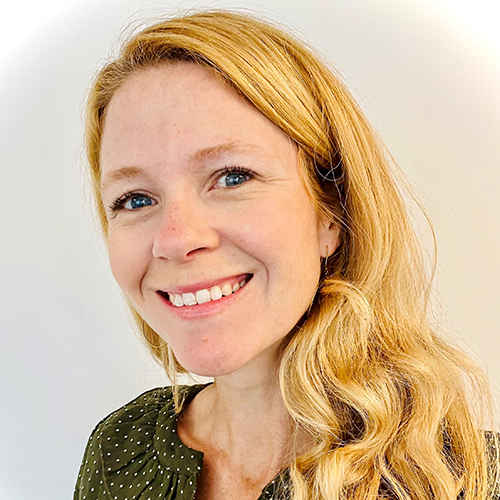
When Evidence and Empathy Aren't Enough: Changing Your Lactation Practice to Boost Client Success

Johanna Sargeant is an International Board Certified Lactation Consultant, teacher and writer based in Zurich, Switzerland. She is passionate about utilising her background in education, biological science, psychology and language to empower parents with empathetic support and evidence-based information through her private practice, Milk and Motherhood.
Originally from Australia, Johanna provides much-needed English-speaking support to many thousands of parents throughout Switzerland and across Europe, and has recently been writing new education modules for the European Society of Paediatric Research and the European Society of Neonatology. She has taught at the University of Zurich, has spoken as a panelist for the WHO's Baby Friendly Hospital Initiative congress in Geneva, has been an expert speaker and facilitator for Google, and has presented at a wide variety of international conferences. The complexities of her personal feeding experiences fuels her passion for providing knowledgeable, guilt-free infant feeding support globally.
Topic: Mastering Lactation Conversations: Creating Successful and Achievable Care Plans - [View Abstract]
Topic: Seeing the Bigger Picture: Finding Clues in Our Breastfeeding Clients' Surroundings - [View Abstract]
Topic: When Evidence and Empathy Aren't Enough: Changing Your Lactation Practice to Boost Client Success - [View Abstract]
Lactation professionals often accompany clients through the process of making difficult decisions: The client who wants to exclusively breast/chestfeed but loves that their partner gives infant formula each evening; The client who wants to and doesn’t want to stop pumping simultaneously; The parents who feel unsure about a potential frenotomy procedure; The client with breastfeeding aversion, desperately struggling with their 18 month old. Lactation professionals aim to provide empathetic care and to give the evidence needed to make informed decisions, and yet there are times where this is not enough and where clients continue to struggle to choose what works best for them. Here, learners will explore some Motivational Interviewing strategies that will actively empower clients, resulting in a significant shift in lactation practice overall. Discover how the strong desire to inform, advise and fix client problems can significantly reduce positive outcomes, and how a focus on the client’s own ‘change talk’ and ‘sustain talk’ can actively mobilize them towards their goal. Learn specific tools to immediately apply in consultations so parents feel deeply supported, feel motivated towards change, feel ownership of their plan, and to ultimately increase the likelihood of their success.

When Tears Flow and Milk Doesn’t: Support Through Breastfeeding Grief

Amy Barron Smolinski holds an MA from Union Institute and University, where her thesis explored re-emerging Sacred Feminine manifestations in the lives of contemporary women. She is the Executive Director of Mom2Mom Global, a network of breastfeeding peer support, education, and advocacy for military families. She works with breastfeeding dyads in a variety of settings, from inpatient postpartum and NICU to home visits, telephone, and online consulting as an Advanced Lactation Consultant and Certified Lactation Counselor. Supporting breastfeeding families has shown her how each parent’s breastfeeding journey with each of her children is a reclamation of her connection to her inner wisdom and power. Amy is an actress, director, and professional voice artist in Germany, where she resides with her husband and four sons, all of whom breastfed to self-weaning.
Topic: When Tears Flow and Milk Doesn’t: Support Through Breastfeeding Grief - [View Abstract]
Some women who initiate breastfeeding will not meet their duration goals. There are a number of factors that contribute to undesired weaning. For a woman who ceases breastfeeding before she desires to do so, it can be devastating. For the lactation professional or peer supporter, this can also feel like failure. Grief counseling and ethical principles are applicable to supporting a mother grieving the loss of the breastfeeding relationship she desired. This presentation uses case studies to address the questions of how breastfeeding supporters ethically and compassionately support mothers who end their breastfeeding journey before they wish to, how lactation professionals and peer supporters can manage our own feelings in these situations, and what are the ramifications of these cases as we continue to share accurate breastfeeding information in the face of media-driven culture in which infant feeding is loaded with guilt, shame, and fear.

View Details / Enroll

View Details / Enroll
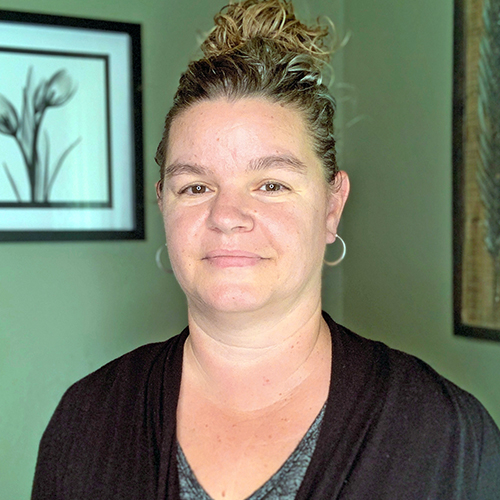
Your Responsibility to the WHO Code: Evaluating Real-World Scenarios for Compliance

Christine Staricka is a Registered, International Board-Certified Lactation Consultant and trained childbirth educator. As the host of The Lactation Training Lab Podcast, her current role focuses on training and coaching current and aspiring lactation care providers. Christine created and developed The First 100 Hours© concept, an early lactation framework designed to support lactation care providers with the knowledge and mindset they need to help families optimize early lactation. Christine worked as a hospital-based IBCLC for 10 years and has over 20 years experience providing clinical lactation care and support. She provides clinical lactation care to families at Baby Café Bakersfield and serves as its Director. Christine recently completed 6 years of service on the Board of the United States Lactation Consultant Association (USLCA.) She holds a Bachelor's Degree from the University of Phoenix. She has been married for 27 years, lives in California, and is the proud mother of 3 amazing daughters.
Topic: Tongue-Tied and Troubled: A Breastfeeding Journey at Risk - [View Abstract]
Topic: Your Responsibility to the WHO Code: Evaluating Real-World Scenarios for Compliance - [View Abstract]
The International Code of Marketing of Breastmilk Substitutes (WHO Code) exists to protect health during a vulnerable period of life. In the course of practicing health care in the service of families with babies and young children, health care workers of all disciplines will encounter situations which should be guided by the WHO Code. It is in the interest of families and health for all health workers to be aware of the WHO Code and what it requires, as well as to be able to evaluate a situation where a commercial entity is interacting with the public regarding infant and young child feeding. Using a rubric of WHO Code guidance, the participant will practice evaluating real-world case studies and determining whether or not they are in compliance with the WHO Code.

“The Little Engine That Could”: Breastfeeding Journeys of Very Premature Babies on Home Tube Feeds

Karen Lasby leads a specialized nursing team in post-discharge follow-up of extremely premature infants and their families in Alberta, Canada. She has presented locally, nationally, and internationally on the topics of premature babies, neonatal oral feeding, and NICU-to-home transition, including the 2019 and 2022 GOLD Neonatal Conferences. She has been the co-investigator in several research studies examining outcomes for very low birth weight infants and has published articles on maternal work in the NICU, neonatal transition, and gastroesophageal reflux. An educator for nearly thirty years, Karen has taught, written instructional material, and produced online neonatal nursing courses. Formerly the president of the Canadian Association of Neonatal Nurses, she served on this national board for twelve years, and on the board of the Council for International Neonatal Nurses for three years. Karen’s work has been recognized by the Canadian Institute of Child Health and College and Association of Registered Nurses of Alberta. Karen is the co-author for the parent book, "Preemie Care: A guide to navigate the first year with your premature baby".
Noriko Woods is a member of a specialized nursing team in post-discharge follow-up of extremely premature infants and their families in Alberta, Canada. She started her Level 4 NICU RN career in Kanagawa, Japan, trained and worked for 5 years before moving to Canada. She worked 5 years as a Level 4 NICU RN in Calgary Alberta before she started her current position at Postpartum Community Health Services, as a public health nurse. She became passionate about breastfeeding with her own experience with her first child in 2009 and obtained the IBCLC in 2011. She has been working with early postpartum mothers and babies to reach their breastfeeding goals as a Lactation Consultant in her community. She is passionate about supporting families to achieve positive feeding experience with a bottle and at breasts. She has been participating with various committees such as Calgary NICU LC group to revise the breastfeeding guidebook for NICU parents, Calgary Breastfeeding Matters Group annual conference committee, GOLD Neonatal Professional Advisory Committee.
Long NICU stays, invasive oral procedures, chronic lung disease, and gastrointestinal complications can contribute to a complex oral feeding journey for premature infants. Frequently, the NICU journey prioritizes bottle feeding over breast feeding. Breastmilk supply and transfer are challenging for mothers and infants born very premature. At the time of NICU discharge, most very premature infants remain fragile oral feeders with weak breast-feeding and bottle-feeding skills, and some require tube feeding support. Community-based breastfeeding support is often lacking, and breastmilk intake and direct breastfeeding diminish beyond discharge. The authors will highlight four remarkable case studies of very premature newborns who were discharged home on nasogastric tube feeding. All four babies had a complex oral feeding journey in the NICU with minimal opportunity to develop breastfeeding skills. Parent comments will be shared, including barriers and facilitators for breastfeeding. Take away messages will focus on helpful strategies to support families taking home a fragile feeder and progressing toward positive, enjoyable oral feedings and more importantly, weaning from tube support and advancing breastfeeding.

View Details / Enroll
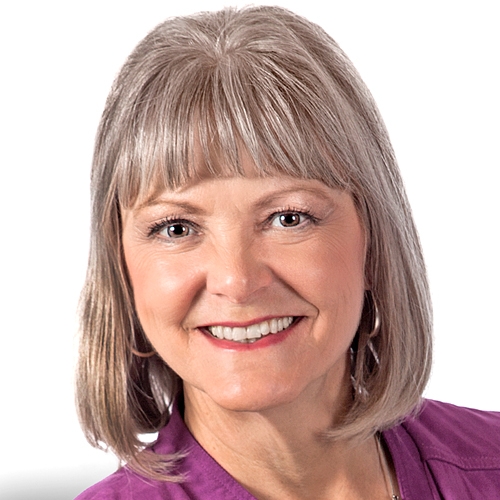
“Zooming Ahead”; Post-NICU Discharge Very-Low-Birth-Weight Infant Follow-up Program Goes Virtual

Karen has worn a number of hats in her nursing career but always comes back to her passion for premature babies. Her background includes NICU nurse, transport nurse and NICU educator, rural nursing, staff development, pediatrics, pediatric intensive care, and community health. For over 20 years Karen has lead Calgary’s specialized “Neonatal Transition Team”, which she will talk about today. Karen has presented locally, nationally, and internationally and has also been co-investigator in several research and quality improvement studies examining outcomes for very low birth weight infants. For nearly 30 years, Karen taught, wrote instructional material, and produced on-line courses for nurses to earn a certificate in neonatal nursing through Mount Royal University. Karen is a past-president of the Canadian Association of Neonatal Nurses and served on this national board for 12 years, and on the international board of the Council for International Neonatal Nurses for 3 years. In 2019, Along with co-author, Tammy Sherrow, Karen published the book “Preemie Care: A guide to navigating the first year with your premature baby”.
Topic: “Zooming Ahead”; Post-NICU Discharge Very-Low-Birth-Weight Infant Follow-up Program Goes Virtual - [View Abstract]
Many preterm infants remain vulnerable following discharge from the neonatal intensive care unit (NICU). Health challenges persist beyond the NICU including respiratory illness, breastfeeding progression, bottle feeding incoordination, behavior and development issues, impaired growth, infrequent stooling, and gastroesophageal reflux. Preterm infants are up to two times more likely than full term infants to be hospitalized in the first year of life. Parents are challenged to transition their premature baby home and to keep them home!
Community-based, specialized follow-up services following NICU discharge have a powerful impact. The Neonatal Transition Team in Calgary, Alberta, Canada provides post-NICU follow-up for very-low-birth-weight infants and their families. The team consists of community health registered nurses with advanced skill in premature infant outcomes, feeding and neurodevelopmental assessment, and a consultation partnership with nutritional and feeding specialists. While home visits have been the backbone of this service, the team questioned the feasibility and acceptance of virtual care and completed a three month quality improvement pilot. This virtual care pilot demonstrated optimization of health-care resources by providing safe, high-quality care at a reduced operational cost. The pilot was instrumental in the team’s management during the SARS-COVID-19 pandemic. Virtual care has been fully operationalized into the service delivery model and expanded to serve other newborns with feeding or growth challenges.
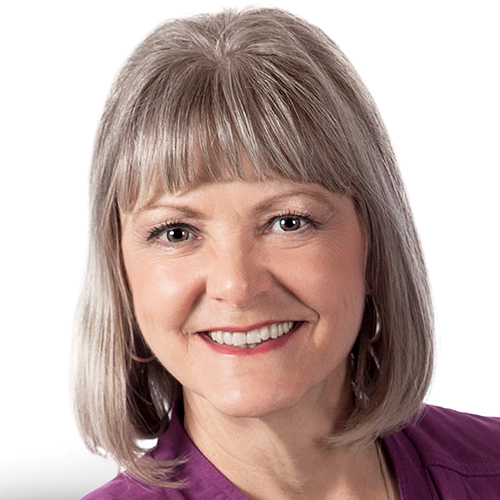
View Details / Enroll





